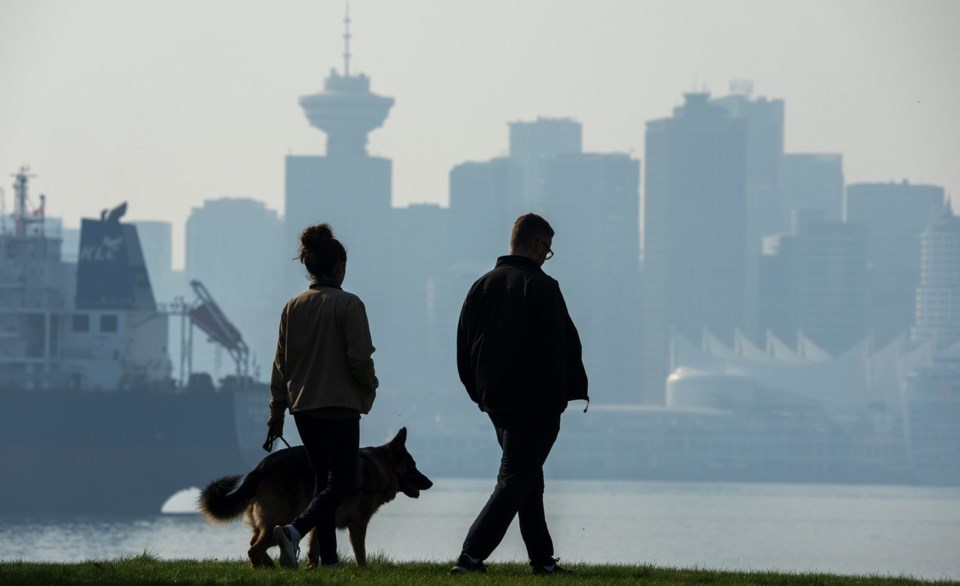VANCOUVER — The Metro Vancouver regional district has issued an air-quality warning as a dense shroud of wildfire smoke descends over much of Western Canada.
Environment Canada has also expanded air-quality bulletins to more than 30 areas stretching from the Lower Mainland to the far northeastern corner of British Columbia, while higher-level warnings are in effect across most of Alberta and a portion of northwestern Saskatchewan.
The bulletin from Metro Vancouver says the heavy haze is expected to last a few days or until weather conditions change, and people are advised to avoid or limit outdoor activity due to elevated levels of fine particles in the air.
The Vancouver School Board says it has moved all activities indoors.
Metro Vancouver says the smoke is linked to high humidity and a heat wave that saw the Fraser Canyon community of Lytton tie the record for the hottest temperature ever recorded in Canada during the month of September.
The temperature of 40 C on Tuesday also broke Lytton's daily record of 39.6 C set in 2022, while 11 other B.C. communities, including Cache Creek, Kelowna, Princeton and Whistler, also saw local records fall.
Heat warnings are in place for nine areas of the province, including inland areas of the north and central coast, as well as the North and South Thompson, Fraser Canyon and Boundary regions.
Environment Canada says the heat in the southern Interior is due to a ridge of high pressure "anchored" over the region, creating a "moderate risk" to public health.
The heat warnings are expected to end by Thursday for the southern Interior and Friday for inland areas of the coast.
The smoke that has prompted air advisories is expected to persist until Friday in most places.
Metro Vancouver says fires contributing to the smoke include blazes just east of Hope, near Whistler, and in the Cariboo region, as well as fires in the United States.
In Alberta, Environment Canada has suggested people limit their time outdoors and reschedule outdoor events.
The weather agency says the smoke is causing "very poor air quality and reduced visibility in some areas."
It has recommended those who cannot avoid being outside use a respirator-type mask to reduce exposure to fine particles in the smoke.
"Even though exposure may be reduced, there can still be risks to health," it says.
This report by The Canadian Press was first published Sept. 3, 2025.
Chuck Chiang, The Canadian Press



